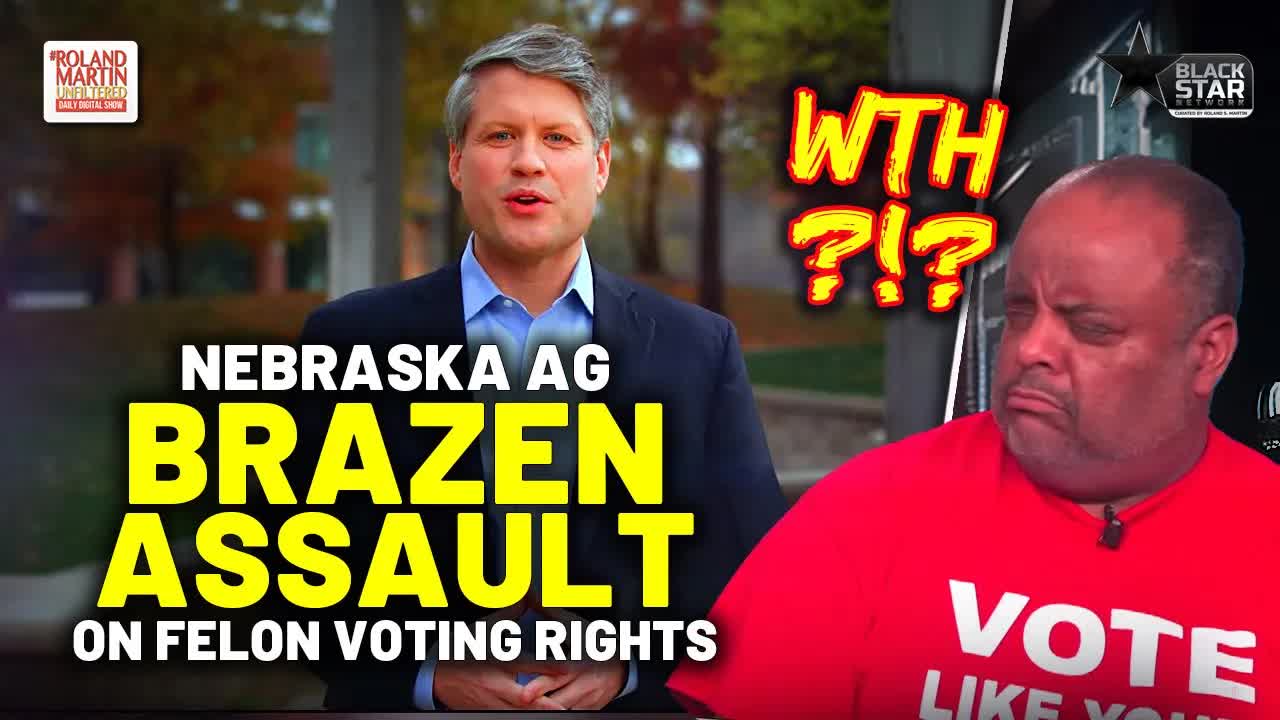On July 19th, a significant bill was set to restore voting rights for approximately 7,000 individuals in Nebraska.
However, the state’s Attorney General and Secretary of State quickly dismissed this legislation, deeming it unconstitutional.
This unexpected move raises eyebrows and prompts questions about the balance of power within the state’s government.
How can the Attorney General and Secretary of State unilaterally declare a law unconstitutional without a ruling from the Nebraska Supreme Court?
State Senator Terrell McKinney, who has been vocal about the situation, expressed his confusion regarding the events that transpired.
“When the legislature passes a law, it should stand unless challenged in court,” he stated.
Yet, the Attorney General’s opinion, which is merely advisory, claimed that not only the new law but also a statute from 2005 was unconstitutional.
This declaration came just as the new law was about to take effect, leaving many lawmakers bewildered.
The crux of the issue lies in the timing and authority of the Attorney General’s opinion.
McKinney pointed out that these claims were never raised during the legislative session.
“None of us had heard anything about the 2005 law being unconstitutional until this opinion surfaced,” he noted.
This sudden assertion left many, including some Republicans, scratching their heads.
In Nebraska, the legislature operates under a unique unicameral system, meaning there’s only one legislative body.
The bipartisan support for the recently passed bill underscores the unusual nature of the Attorney General’s intervention.
Colleagues of McKinney reportedly echoed his concerns about the separation of powers, questioning how the executive branch could override the legislative process.
Looking ahead, the matter is now in the hands of the state’s Supreme Court.
Legal challenges are underway, with hopes that the court will affirm the constitutionality of the law and allow those affected to vote in the upcoming November elections.
But the question remains: who is actually suing whom in this convoluted scenario?
Interestingly, it’s not the legislature that has taken action against the Attorney General.
Instead, the ACLU of Nebraska has filed a lawsuit challenging the Attorney General’s stance.
This class action suit represents individuals who would benefit from the restored voting rights, indicating that the fight for enfranchisement is far from over.
As the discussion unfolded, panelists weighed in on the implications of the bill and the demographics of those impacted.
The senator pointed out the disproportionate representation of Black individuals among the 7,000 people whose voting rights would be restored.
The state’s prison population is notably skewed, with a significant number of incarcerated individuals being Black, particularly from McKinney’s district.
Dr. Nola Haynes raised an important question about the nature of the ACLU’s lawsuit, seeking clarification on whether it was a civil rights case.
McKinney confirmed that it indeed falls under a class action lawsuit, focusing on the rights of the individuals affected by the Attorney General’s opinion.
Delving deeper into the political ramifications, Dr. Mustafa Santiago Ali questioned the motivations behind the Attorney General’s actions.
McKinney explained that Nebraska’s electoral structure is unique, as it splits its electoral votes.
This means that allowing more returning citizens to vote could potentially shift the balance in certain districts, particularly in urban areas like Omaha, where a significant portion of the population is Black.
As the conversation wrapped up, the senator emphasized the importance of keeping the public informed about these developments.
The stakes are high, and the outcome of this legal battle could reshape the political landscape in Nebraska.
The fight for voting rights is not just a legal issue; it’s a matter of representation and justice for marginalized communities.
In a time when voices of color are often sidelined, the call for investment in Black-owned media and platforms that amplify these stories is more crucial than ever.
The narrative surrounding voting rights and the ongoing struggles faced by returning citizens must be told, and it’s up to the community to support this vital work.































